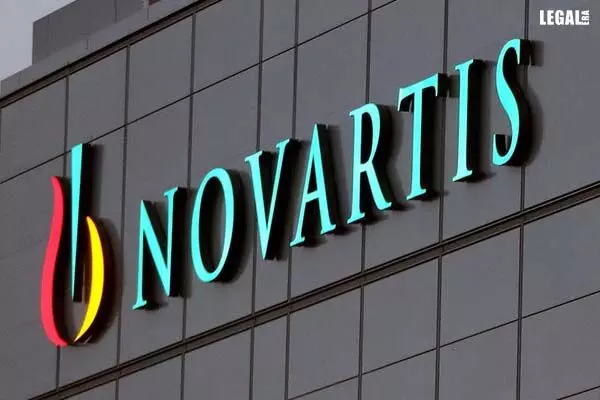- Home
- News
- Articles+
- Aerospace
- Artificial Intelligence
- Agriculture
- Alternate Dispute Resolution
- Arbitration & Mediation
- Banking and Finance
- Bankruptcy
- Book Review
- Bribery & Corruption
- Commercial Litigation
- Competition Law
- Conference Reports
- Consumer Products
- Contract
- Corporate Governance
- Corporate Law
- Covid-19
- Cryptocurrency
- Cybersecurity
- Data Protection
- Defence
- Digital Economy
- E-commerce
- Employment Law
- Energy and Natural Resources
- Entertainment and Sports Law
- Environmental Law
- Environmental, Social, and Governance
- Foreign Direct Investment
- Food and Beverage
- Gaming
- Health Care
- IBC Diaries
- In Focus
- Inclusion & Diversity
- Insurance Law
- Intellectual Property
- International Law
- IP & Tech Era
- Know the Law
- Labour Laws
- Law & Policy and Regulation
- Litigation
- Litigation Funding
- Manufacturing
- Mergers & Acquisitions
- NFTs
- Privacy
- Private Equity
- Project Finance
- Real Estate
- Risk and Compliance
- Student Corner
- Take On Board
- Tax
- Technology Media and Telecom
- Tributes
- Viewpoint
- Zoom In
- Law Firms
- In-House
- Rankings
- E-Magazine
- Legal Era TV
- Events
- Middle East
- Africa
- News
- Articles
- Aerospace
- Artificial Intelligence
- Agriculture
- Alternate Dispute Resolution
- Arbitration & Mediation
- Banking and Finance
- Bankruptcy
- Book Review
- Bribery & Corruption
- Commercial Litigation
- Competition Law
- Conference Reports
- Consumer Products
- Contract
- Corporate Governance
- Corporate Law
- Covid-19
- Cryptocurrency
- Cybersecurity
- Data Protection
- Defence
- Digital Economy
- E-commerce
- Employment Law
- Energy and Natural Resources
- Entertainment and Sports Law
- Environmental Law
- Environmental, Social, and Governance
- Foreign Direct Investment
- Food and Beverage
- Gaming
- Health Care
- IBC Diaries
- In Focus
- Inclusion & Diversity
- Insurance Law
- Intellectual Property
- International Law
- IP & Tech Era
- Know the Law
- Labour Laws
- Law & Policy and Regulation
- Litigation
- Litigation Funding
- Manufacturing
- Mergers & Acquisitions
- NFTs
- Privacy
- Private Equity
- Project Finance
- Real Estate
- Risk and Compliance
- Student Corner
- Take On Board
- Tax
- Technology Media and Telecom
- Tributes
- Viewpoint
- Zoom In
- Law Firms
- In-House
- Rankings
- E-Magazine
- Legal Era TV
- Events
- Middle East
- Africa
US District Court Observes Strong Anti-fraud Safeguards In Novartis Settlement Over Exforge

US District Court Observes Strong Anti-fraud Safeguards In Novartis Settlement Over Exforge
Numerous improper claims were detected in a $30 million payment
The US District Court - Southern District of New York has held that there were ‘robust’ safeguards in place to ward off fraudulent distributions by Novartis.
In the Novartis and Par Pharmaceutical antitrust litigation case, the US Magistrate Judge Stewart Aaron was handed over the charge to review the process after thousands of improper claims were detected in a $30 million settlement with the medicine company.
Thus, Judge Aaron said that the Novartis claims process administered by the Angeion Group "has integrity and has been carried out in a diligent and thorough manner."
Last year, consumers and health plans settled the antitrust claims against Novartis over its hypertension drug Exforge, but the company denied any transgression.
Recently, Judge Alvin Hellerstein said that nearly 15,000 settlement fund checks were never cashed and that out of 132,000 consumer claims submitted to the settlement administrator, only 22,000 were allowed.
Justice Hellerstein asked Justice Aaron to investigate the claims distribution process.
Justice Aaron's review came amid a rise in fraudulent claims in court settlements.
Angeion identified 109,850 consumer claims that were either invalid or deficient. While most of these were fraudulent, others were duplicative or sought compensation above $28,000, the maximum amount for determining the validity of claims.
The judge’s report noted that Angeion employed a fraud detection system that uses artificial intelligence (AI) to identify potentially suspicious browser traffic. The system also includes behavioral analysis tools, IP address monitoring and email verification.
As of June, the report showed that consumer claim checks accounting for 50 percent of the distributed funds were cashed.
While stating, “prudent and necessary steps to address the fraudulent claims were submitted,” the judge directed Angeion to send emails or postcards to class members with uncashed checks as a ‘reminder notice’. The step would provide an additional opportunity to the consumers with uncashed checks to receive the payment.
Greg Asciolla of DiCello Levitt and Robert Eisler of Grant & Eisenhofer appeared for the plaintiffs.
Novartis was represented by Evan Chesler of Cravath, Swaine & Moore.



